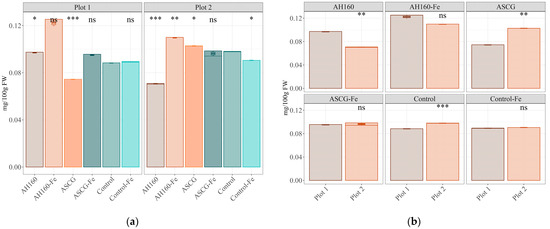
Antioxidants, Vol. 13, Pages 465: Biochelates from Spent Coffee Grounds Increases Iron Levels in Dutch Cucumbers but Affects Their Antioxidant Capacity
Antioxidants doi: 10.3390/antiox13040465
Authors: Beatriz Navajas-Porras Ana Cervera-Mata Alejandro Fernández-Arteaga Adriana Delgado-Osorio Miguel Navarro-Moreno Daniel Hinojosa-Nogueira Silvia Pastoriza Gabriel Delgado Miguel Navarro-Alarcón José Ángel Rufián-Henares
Spent coffee grounds (SCG) are a type of food waste and are produced in abundance around the world. However, their utilization as a soil organic amendment is challenging due to their phytotoxic effect. In the present work, the impact of agronomic biofortification on Dutch cucumbers was investigated using different chemically modified SCG and analyzing their effects on iron contents, their capacity for releasing antioxidants, and the production of short-chain fatty acids after in vitro digestion–fermentation. The results indicated variations in the iron contents and chemical compositions of cucumbers according to the treatment groups. Functionalized and activated hydrochar from SCG increased Fe levels in cucumbers. Although activated hydrochar obtained at 160 °C and functionalized with Fe showed the highest iron supply per serving, differences in antioxidant capacity and short-chain fatty acid production were observed between the groups. It is concluded that growing conditions and the presence of iron may significantly influence the contribution of these cucumbers to the dietary intake of nutrients and antioxidants, which could have important implications for human health and nutrition.
